Fundraising with a successful VC firm is a huge goal for entrepreneurs, especially in the early stages of the business. But the path to a deal isn’t always as straightforward as it may seem. During an enlightening session at SaaStr Europa 2022, Zach Coelius (Managing Partner at Coelius Capital) and Tiffany Luck (Investor at GGV Capital) share the secrets and lesser-known players in the world of venture capital. As Luck says, “There are many players in the VC ecosystem, and so your entry point to fundraising might be with any one of these players.”
VC Associates
VC associates act as deeply trusted advisors for investment teams, will find companies, and often take initial meetings. To create a positive impression on VC associates, be sure that you learn to package your pitch succinctly and memorably and create highlights that they can pass on to their team. Coelius describes their power this way: “The associate can’t necessarily get the deal done themselves –– they’re your advocate. But they can absolutely kill it.”
When you encounter an associate, be sure to give them information and metrics that they can get excited about, and make sure you ask them questions as well. They will likely have insights into the market or a relevant sector that you might not be aware of at the time.
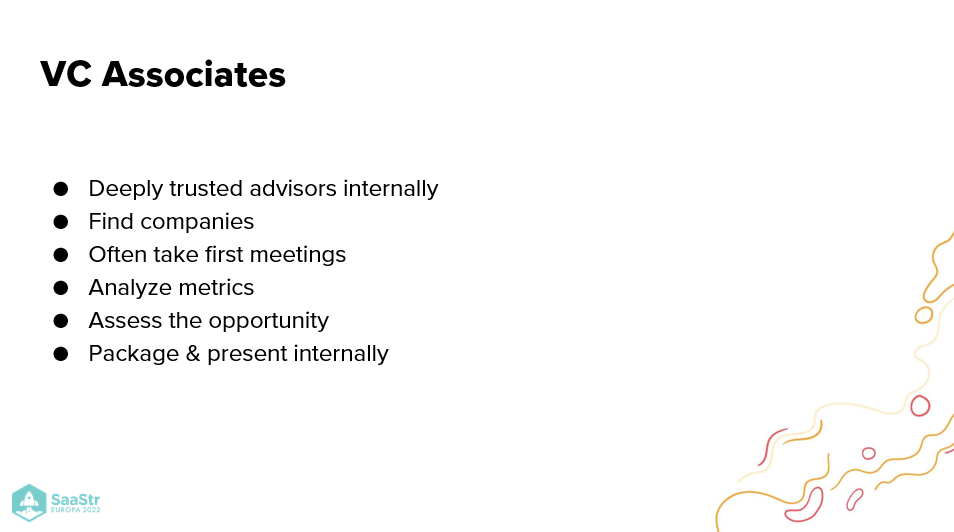
Additionally, be ready to show off some specific metrics to a VC associate. Important ones include:
- ARR/Growth
- NDR/Gross Retention
- Gross Margin
- Sales Efficiency
- Team Size
- Cash Balance/Burn/Burn Ratio.
Don’t be shy about asking the associate what metrics they keep their eye on, especially in such a rapidly shifting market. Luck says, “Especially in today’s environment, you know people are spending a lot more time focused on efficiency and growth and how you’re thinking about growth. Will it be sustainable over time?”
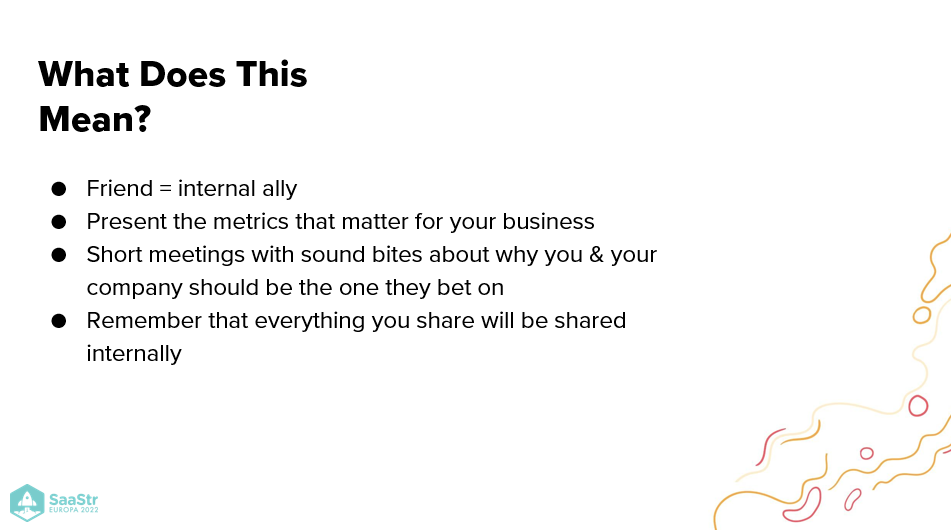
Scouts
A scout is an individual who has a contractual relationship with a venture fund. The venture fund provides them with a small amount of cash to invest. They want the scouts to find winners early on in the stages of their business to save them a seat at the cap table.
However, there are certain side effects to be aware of when working with a scout. As Coelius says, “The problem that you’re going to run into is that there is a pretty significant signaling risk when you have a scout involved in your company.”
This means that if you have a scout investing connected to VC firm A, then VC firm B might get the wrong idea that VC firm A is already heavily involved. However, Scouts can also help you get your foot in the door; just ask the scout what their relationship with their firm is like and how they will help you.
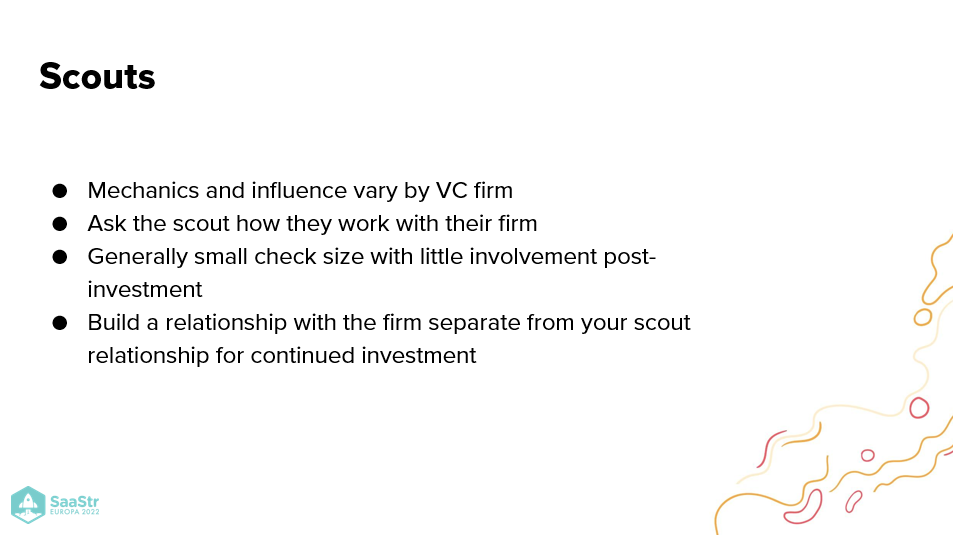
Venture Partners
Venture partners can be a hugely helpful resource for you and your company. Their relationship and tenure will vary depending on the VC firm. They might be your avenue into the firm, or they join your process as part of diligence.
They are not only helpful for fundraising, but they tend to be heavily involved in company-building down the road. Because they are often highly informed and experienced experts in certain sectors, lean on them for advice.
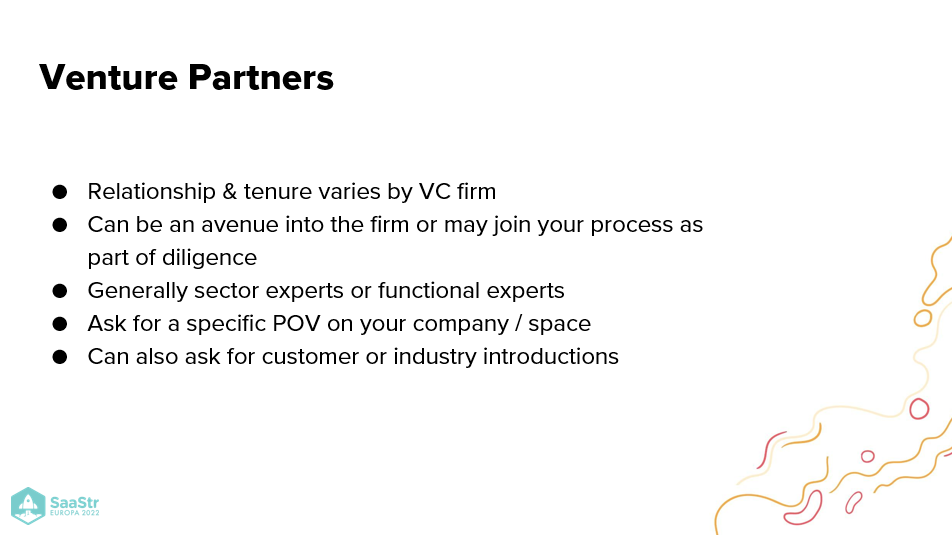
Syndicates/Angels/Others
There are many different flavors of investors and groups that may be able to help you in your fundraising rounds. Their check sizes may vary, but they might have the connections to bring you into a deal. Many people may want in on VC deals, but they need to be the one who brought the company in to get something out of it.
However, it’s crucial to really do your homework and get to know the background of a potential investor. Understanding their history and reputation could be critical to your company’s success.
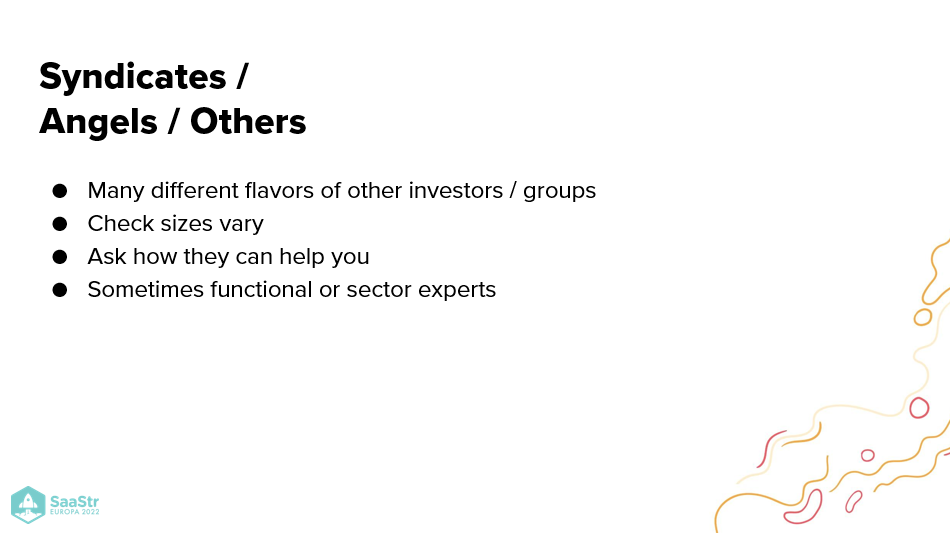
Top Takeaways
- Know your audience and pitch accordingly
- Emphasize high-level, compelling sound bites that can be relayed to others
- Focus on the metrics that matter
- Remember, it’s a two-way street. Ask how they can help you (intros, feedback, etc.)

